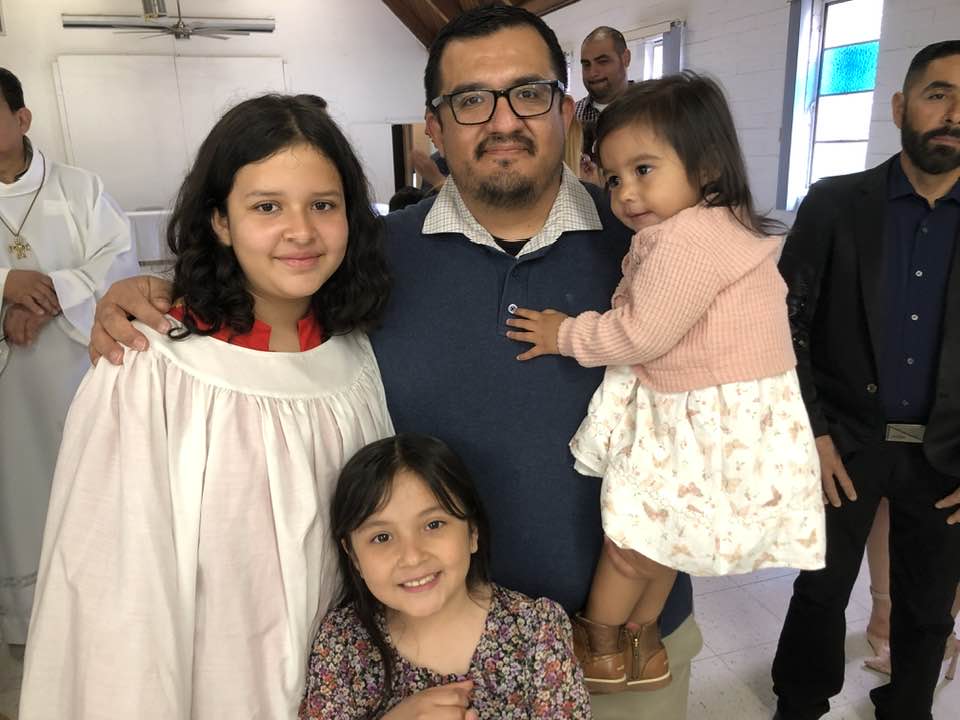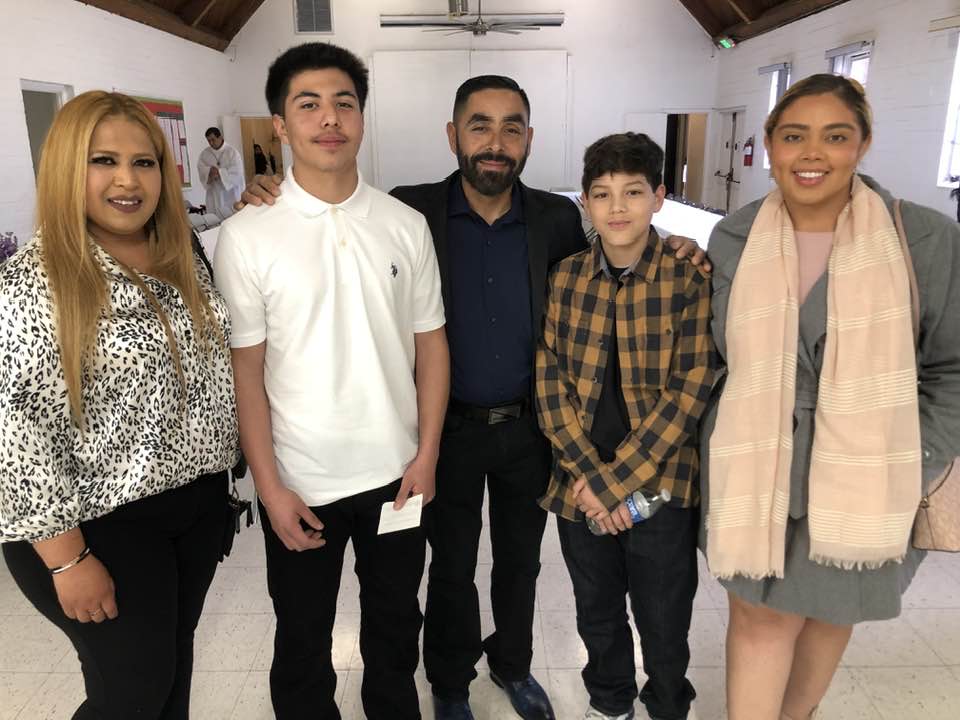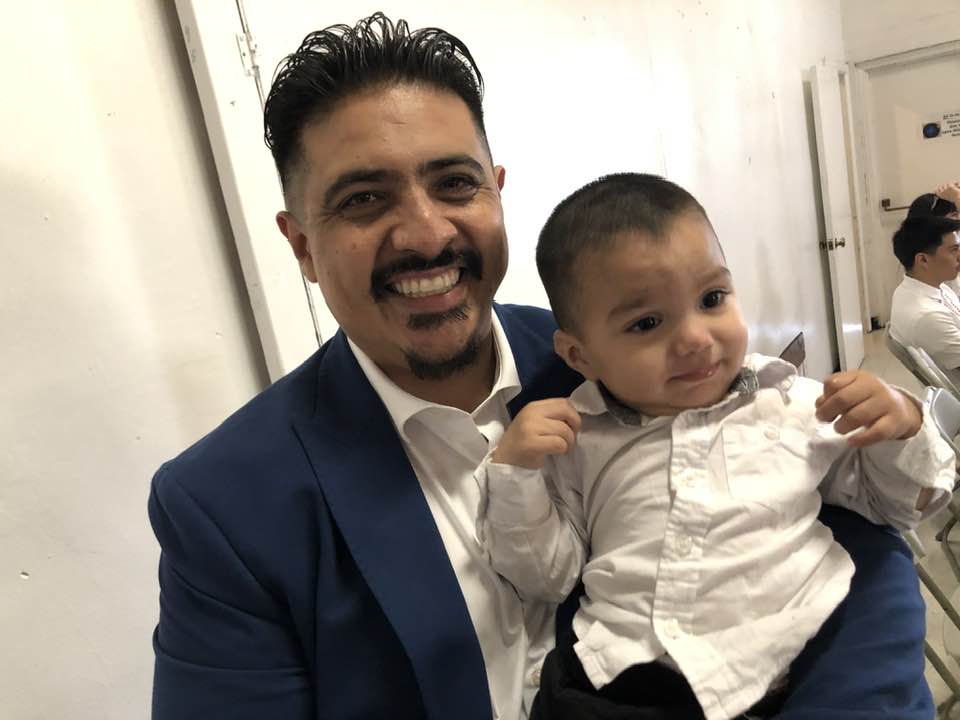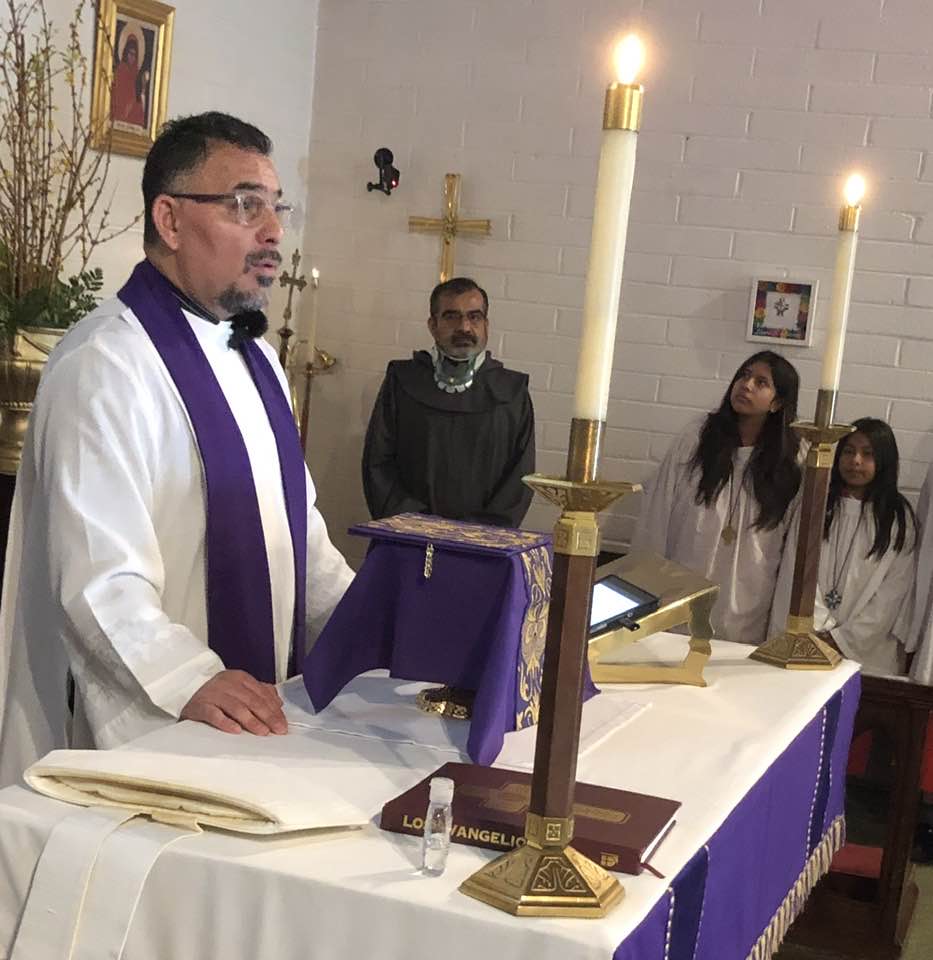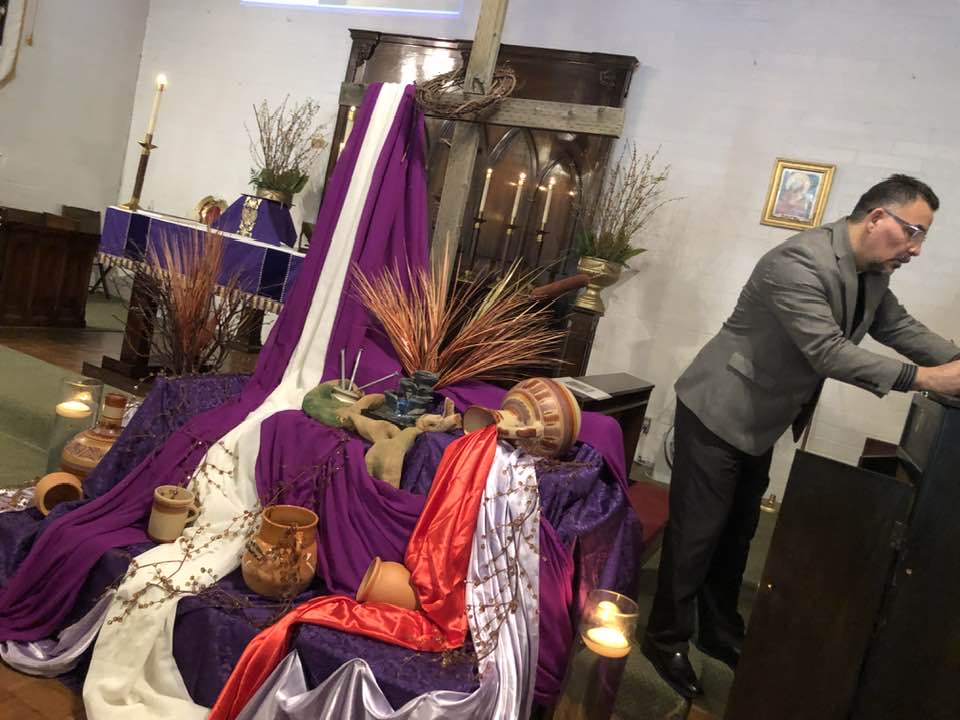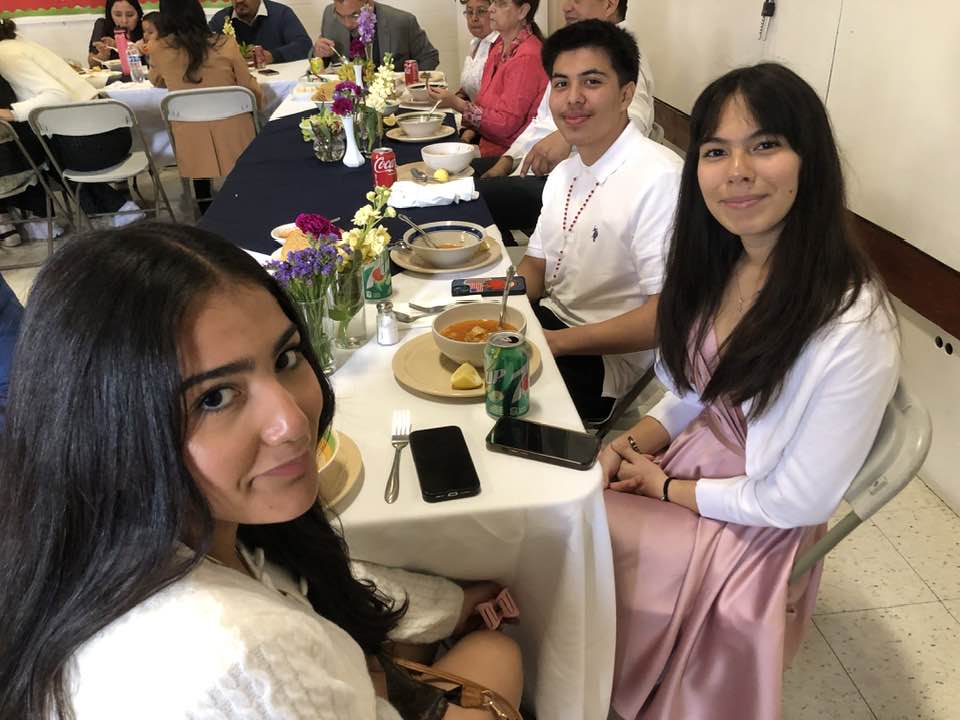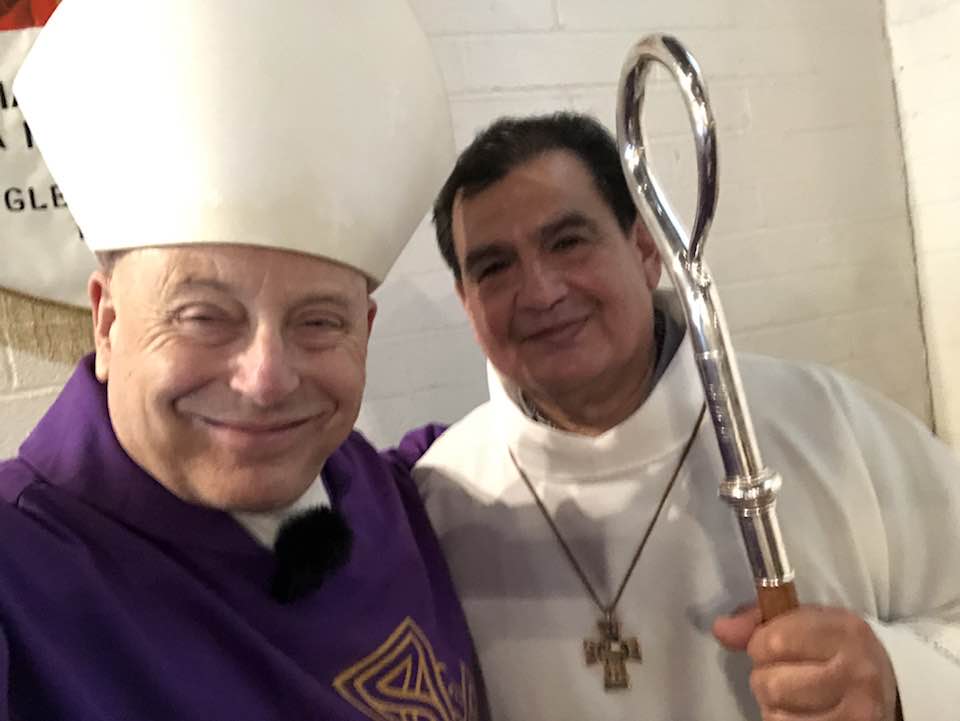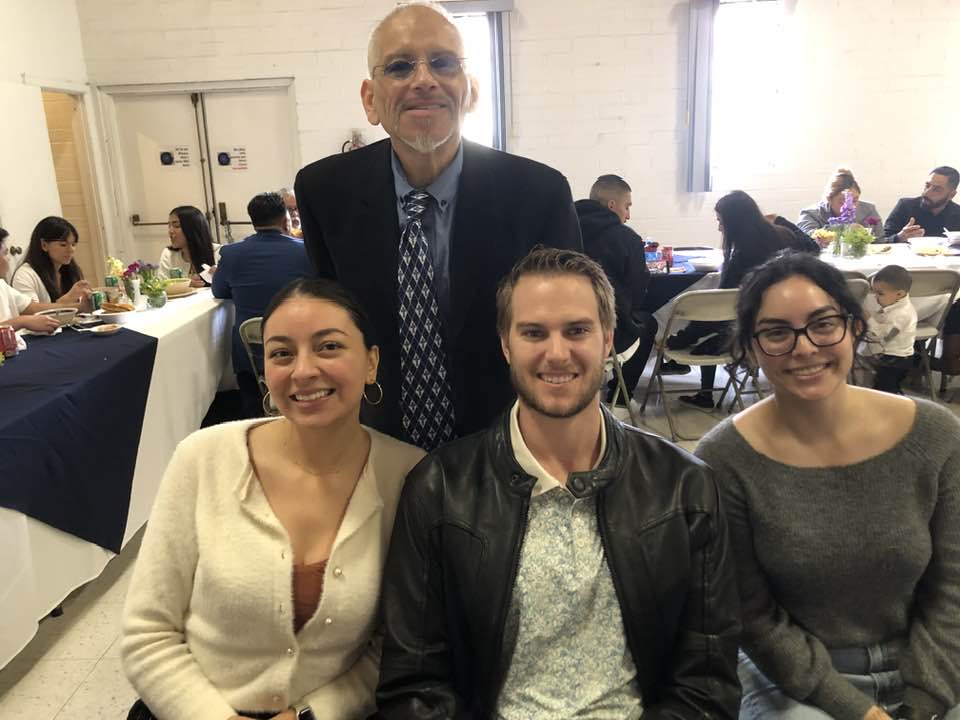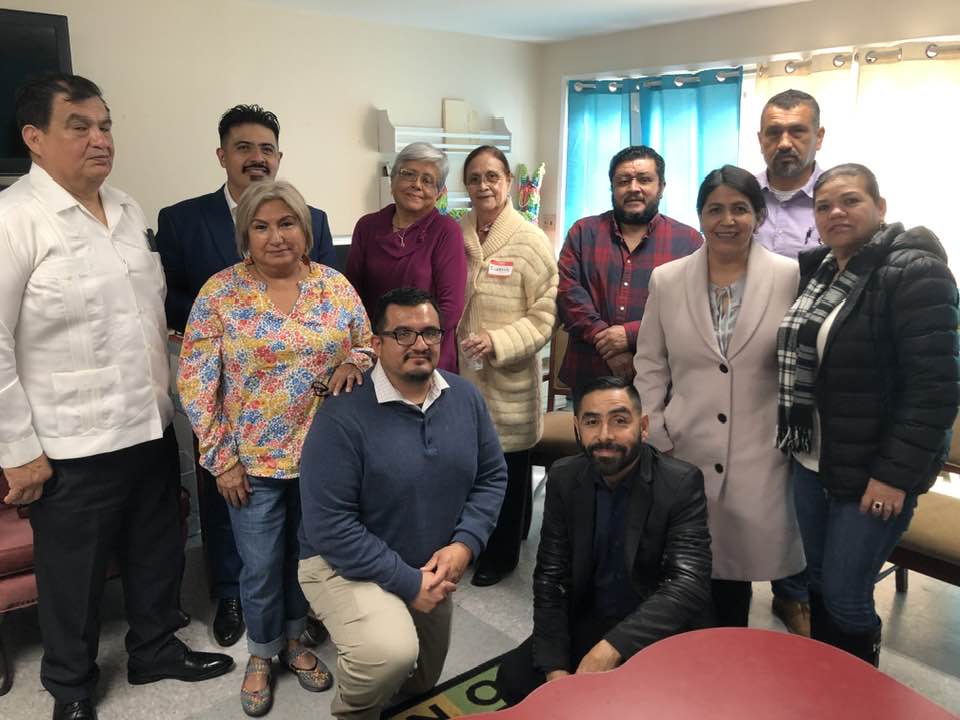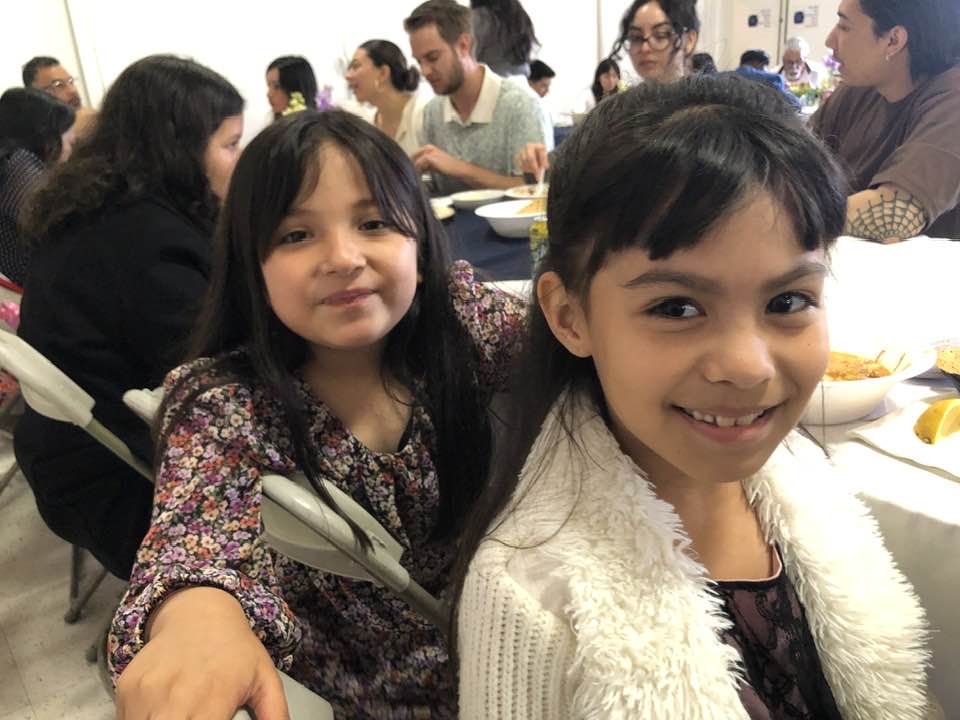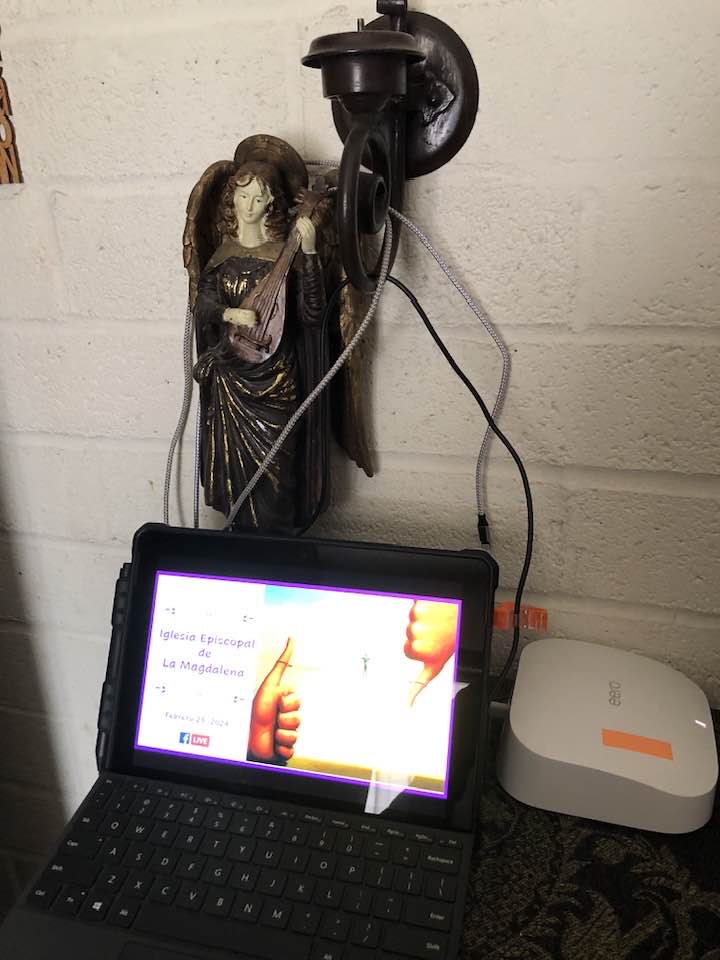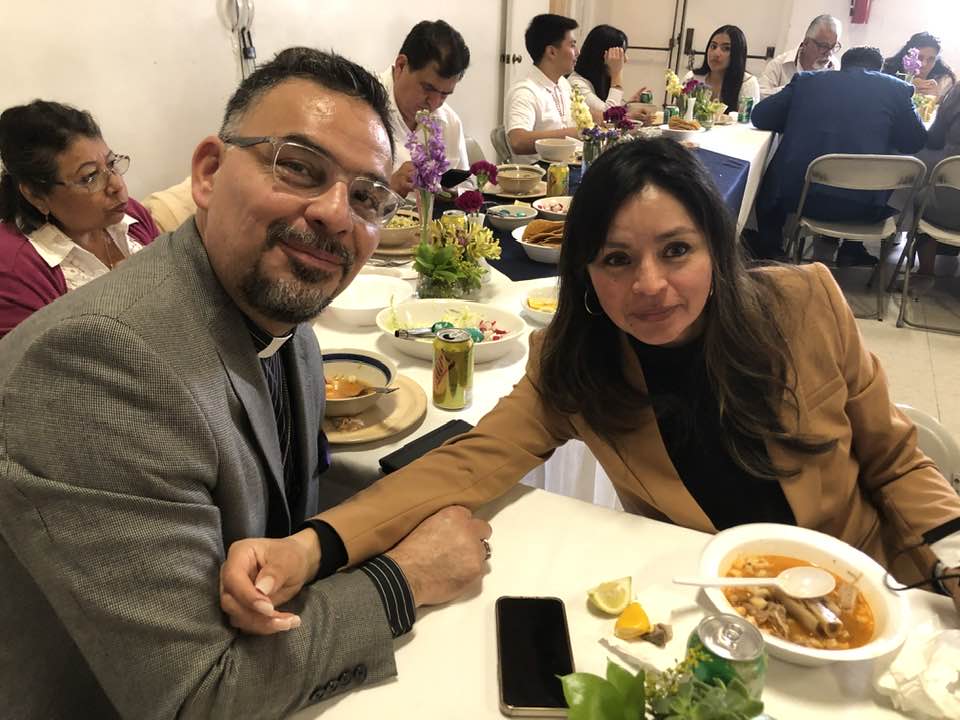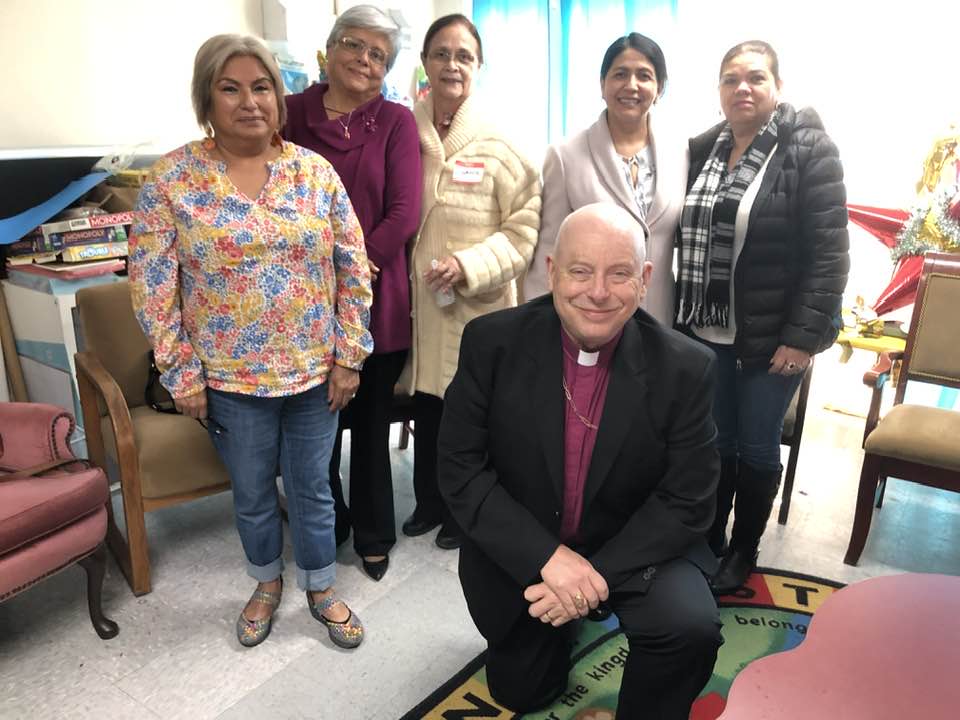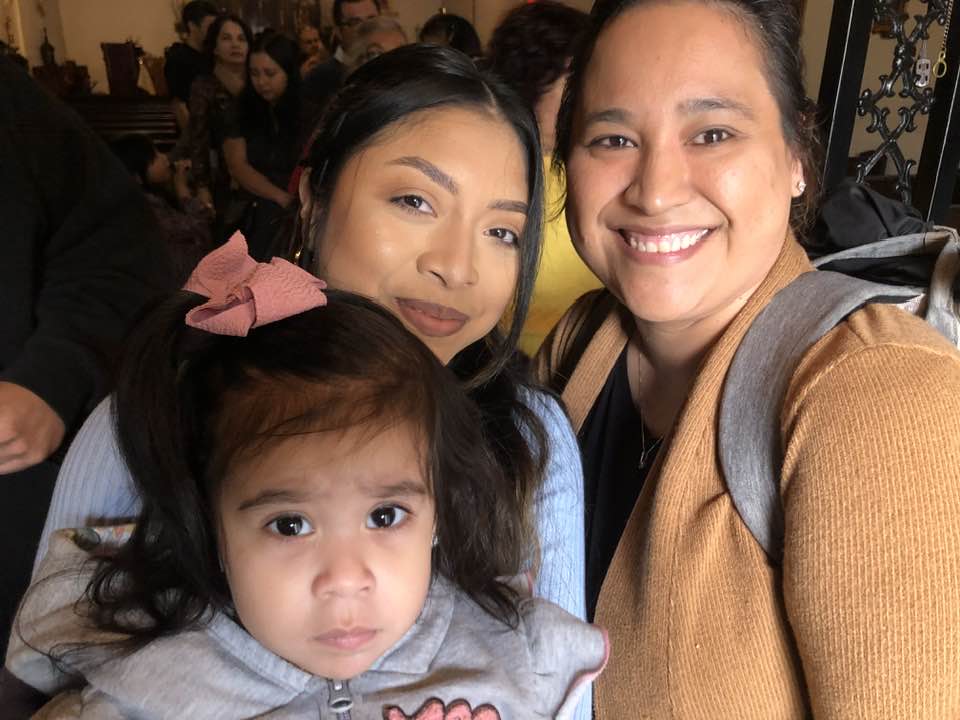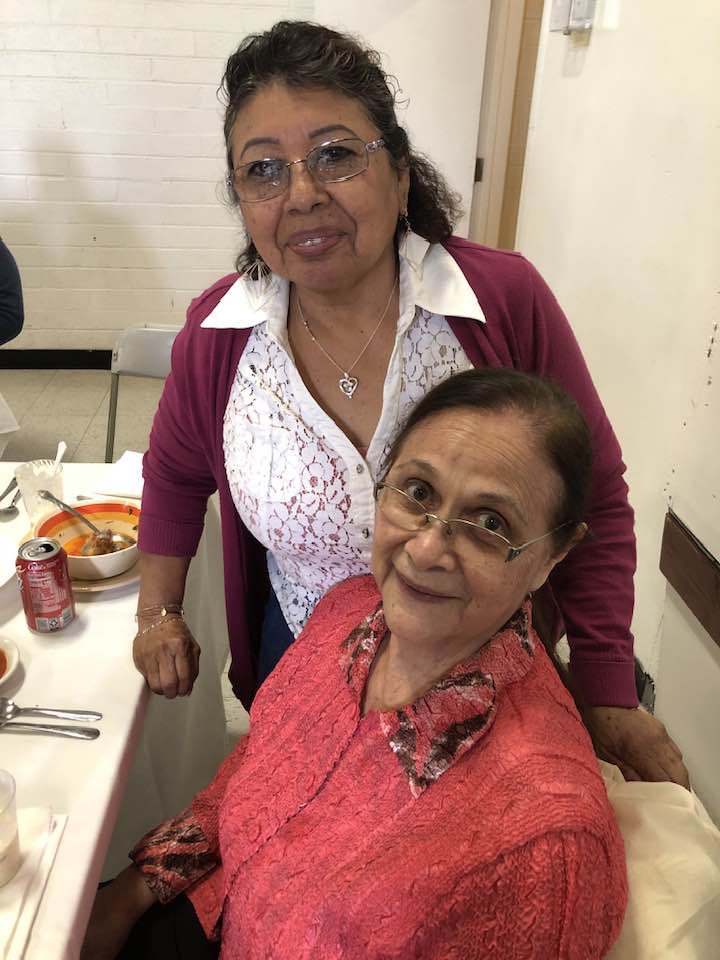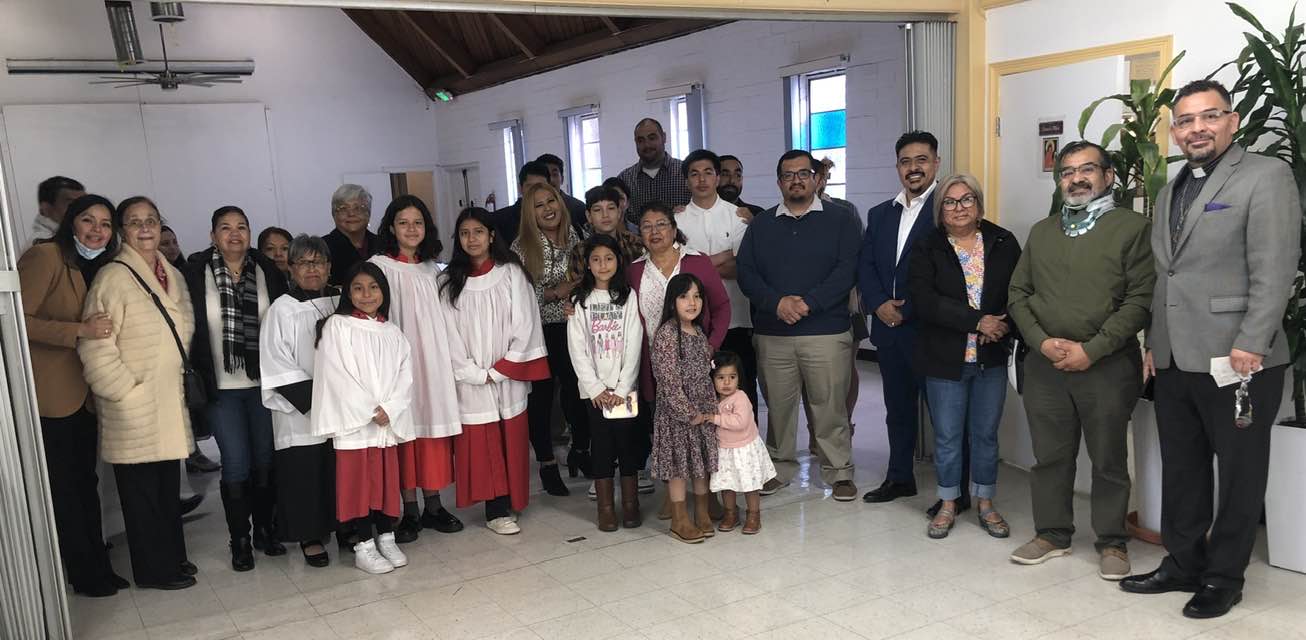
Bishop’s warden Erick Rivera, Jr. has spent all of his 42 years at Iglesia Episcopal de La Magdalena in Glendale. His Guatemala-born father is discerning a call to leadership in the church. After services yesterday, when I preached and presided, both Ericks, former Standing Committee president Ivan Guitierrez, other members of the bishop’s committee, the leaders of La Sociedad de Damas, and I had a bracing 90-minute conversation about the future of this lively, sturdy mission, which brims with the kind of love and spirit that sends me out into the world giving thanks for the power of the living Christ.
Not in the meeting was La Magdalena’s vicar of 18 years, the Rev. Canon Roberto Martinez. He always leaves me alone with his co-leaders when I visit. If you think that’s evidence of a healthy system, you’re right. They came to the church they love from all over Central and North America, and from neighborhoods all over our region, often enduring hardship and injustice, to be stewards of a community that manifests a spirit of bienvenida y unidad. Indeed these were my sermon themes. So while COVID was tough, and some members are still staying home, things are good at La Magdalena.
These church leaders aren’t worried about the present but the future. What if Padre Roberto is called elsewhere? What if the diocese stops supporting this mission church with an annual grant? Though none is impending at La Magdalena, clergy transitions are a fact of life these two millennia. But I’m especially sorry mission leaders are troubled by financial worries. They deserve nothing but the support and affirmation of their diocesan colleagues. Most of our missions get stipends not because they are performing poorly but because, in our society, wealth is distributed unevenly. In a diocesan family, as in all families, we should cheerfully redistribute wealth, so none is left behind.
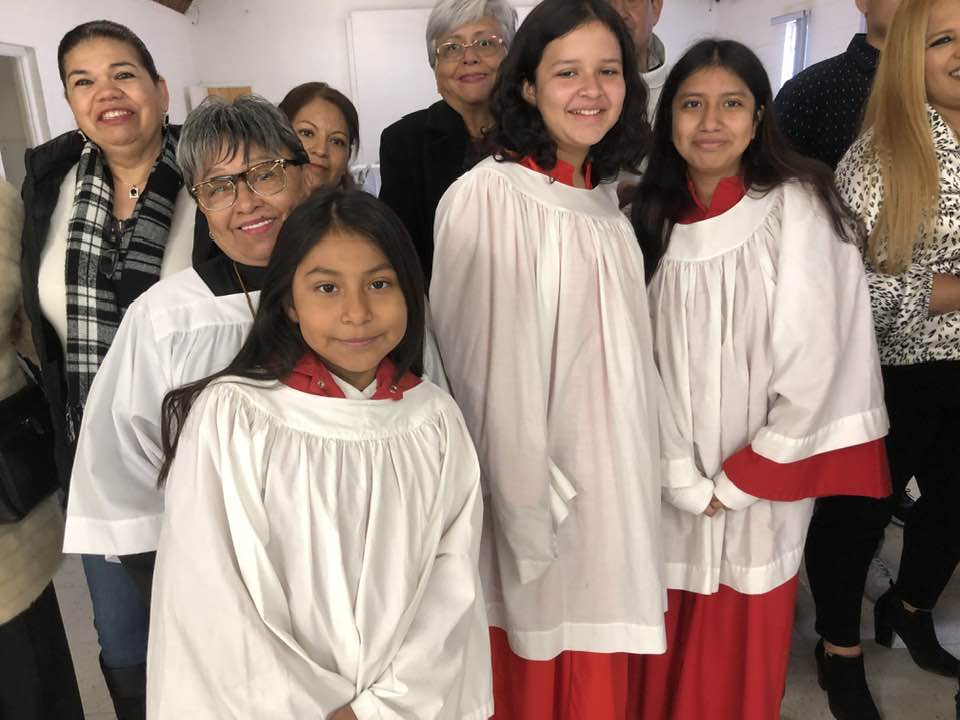 Anyone attending Sunday’s Spanish-language service and the sumptuous fiesta that followed would have come away saying they had experienced the state of the art. Roberto is a brilliant liturgist. AV and live-streaming were network sharp. We had six confirmations and receptions. Roberto and Yanci’s children, Freida and Daniella, guitarists like their dad, fronted the four-piece band, with Freida’s spouse, Sam, on drums.
Anyone attending Sunday’s Spanish-language service and the sumptuous fiesta that followed would have come away saying they had experienced the state of the art. Roberto is a brilliant liturgist. AV and live-streaming were network sharp. We had six confirmations and receptions. Roberto and Yanci’s children, Freida and Daniella, guitarists like their dad, fronted the four-piece band, with Freida’s spouse, Sam, on drums.
While the opening and closing songs were in Spanish, the musicians, mindful of second- and third-generation members, chose praise songs in English as the anthems. When I asked the three younger confirmation candidates, two age 15 and one age 13, if they wanted their confirmation prayer in English or Spanish, they said English.
It is almost always thus with young confirmands at Spanish-speaking churches. Our neighborhoods are filled with siblings in Christ who want to worship in English inflected with an understanding of the Hispanic-Latinx experience in southern and central California. Any mission or parish, especially those where English is the only language, who wants to learn more about ministry to English-speaking Hispanics is welcome at our New Camino seminar on March 22-23. Read more and sign up here. The Rev. Canon Anthony Guillen and the Rev. Carlos Ruvalcaba are hosts.
And that’s not the only important meeting coming up downtown. During our long conversation yesterday afternoon, my chaplain for the day, Julio Hernandez, a contractor, who works with the young people, said it would help them understand they are part of a diocesan family if I invited them to home base at St. Paul’s Commons, Echo Park one Saturday, showed them around, and learned what the church and I need to learn about their hopes, dreams, and fears. So thanks to Julio, that’s the plan — and the pizza will be on me.
